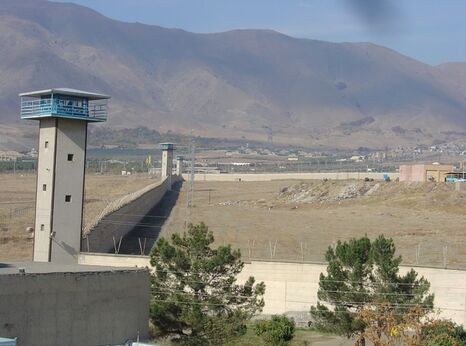Four Ahwazi Arab men secretly executed

According to an informed source, on the day of the executions, ministry of intelligence agents phoned the families of Ali Khasraji, Hossein Silawi, Jasem Heidary and Naser Khafajian and said one person from each family would be permitted to have a prison visit that day. Agents instructed family members to wait at a public space in Ahvaz, Khuzestan province, where they were then blindfolded and driven to an unknown location, revealed to be Sepidar prison upon arrival. At the prison, the families had visits with all four men. According to an informed source, bruising was visible on all four men, raising concerns that they had been tortured or otherwise ill-treated, and the lips of Ali Khasraji, Hossein Silawi and Jasem Heidary had not healed from when they sowed them shut on hunger strike. After the visit and the execution of the men, ministry of intelligence agents told the four families that they were not permitted to hold public memorials or invite family to their home to mourn, and that they were only permitted to hold a private memorial without visitors. There has also been an alarming rise in executions of ethnic minority prisoners since mid-December 2020 in Iran, which includes the execution of Ali Motairi, also a member of Iran’s Ahwazi Arab minority, on 28 January 2021, and the executions of at least 20 Baluchi prisoners.
In January 2020, the judiciary spokesperson had announced that three men had been sentenced to death in relation to an armed attack on a police station in Ahvaz on 14 May 2017 that led to the death of two officials. While the spokesperson did not identify them by name, the case details he revealed indicated that he was referring to Hossein Silawi, Ali Khasraji and Naser Khafajian. That same month, prison officials told the three men that they had been sentenced to death for the May 2017 attack. They were convicted and sentenced following unfair trials and never given copies of their verdicts. On 8 October 2020, the Iranian government wrote to the Office of the UN High Commissioner for Human Rights that “the case [against these three men] is still pending” and that “since the legal proceedings have not hitherto been completed, it is inadmissible to raise the issue of … capital punishment.”
Jasem Heidary was sentenced to death following an unfair trial which convicted him of collaboration with armed opposition groups. His verdict was upheld in November 2020. On 23 January 2021, Ali Khasraji, Hossein Silawi and Jasem Heidary sewed their lips shut and went on hunger strike in protest at their prison conditions, denial of family visits, and the ongoing threat of execution. They ended their hunger strike in mid-February 2021.
Under international law, the crime of enforced disappearance continues until the state releases information pertaining to the fate or whereabouts of the individuals concerned, and this requires, when the disappeared person is found to be dead, returning the remains to their family, who have the right to dispose of those remains according to their own tradition, religion or culture. The anguish inflicted on families due to the continuing uncertainty around the fate of their loved ones and the location of their remains violates the absolute prohibition on torture and other ill-treatment.
Khuzestan province has a large Arab population who generally self-identify as “Ahwazi Arabs”. Despite Khuzestan’s natural resource wealth, the province suffers from severe socioeconomic deprivation and high levels of air and water pollution. Continued under-investment in Khuzestan province by the central government has exacerbated poverty and marginalization. Ahwazi Arabs face entrenched discrimination curtailing equal access to education, employment, adequate housing and political office. Despite repeated calls for linguistic diversity, Persian remains the sole language of instruction in primary and secondary education in the province.